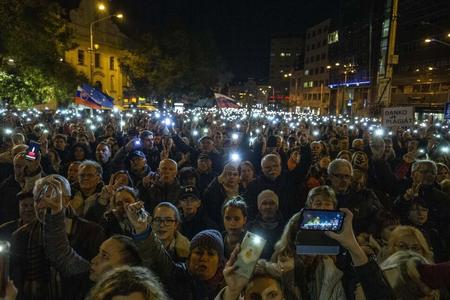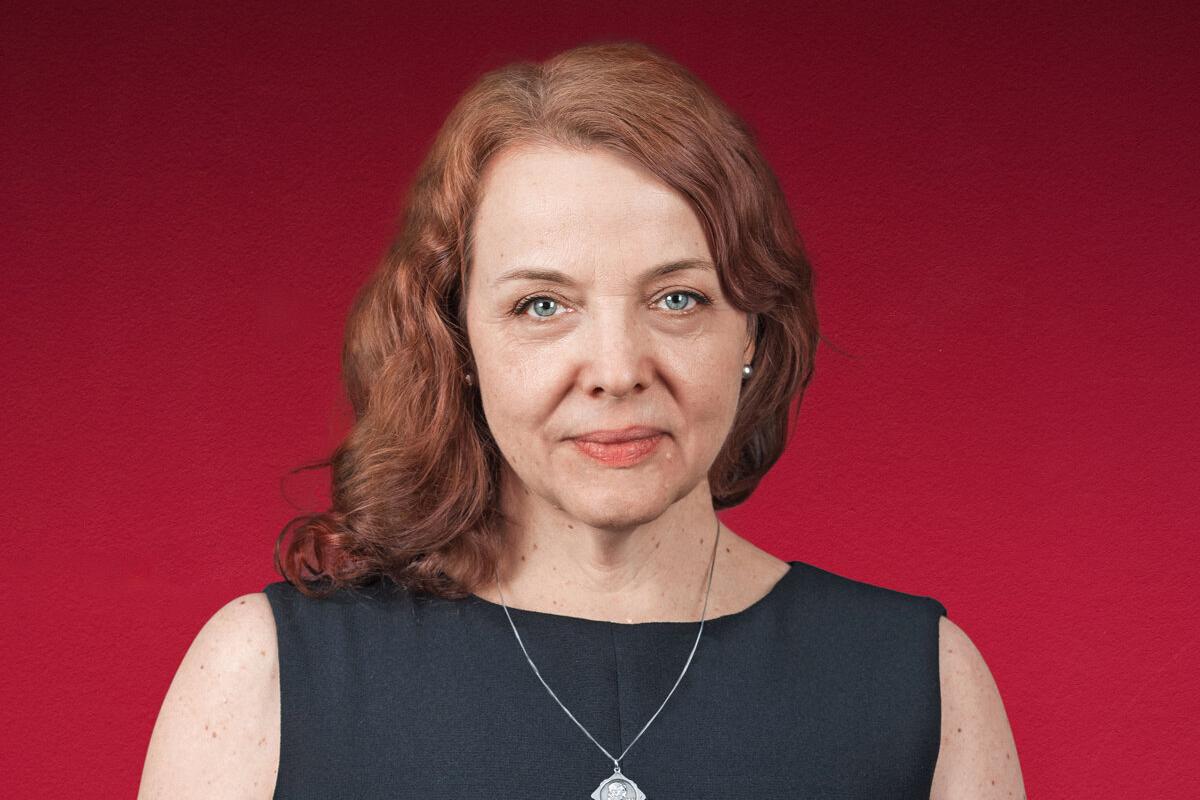The Slovak Spectator spoke to Beata Balogová, the editor-in-chief of the Sme daily and previously the head of The Slovak Spectator editorial, after she was awarded the 2020 European Press Prize for her opinion piece.
The Slovak Spectator (TSS): In the winning story you wrote about 1989: “We were beginners at freedom”. Aren’t we beginners at freedom anymore?

Beata Balogová (BB): We are. What made me write this story was the feeling that we might be losing freedom. People who were beginners back in 1989 had been doing all that fighting, but they might have forgotten about it, and come to feel that freedom was a given. I wanted to show how close we now got to losing freedom. As the anniversary neared, I thought about how to tell the story in a way that different parts of our readership would understand. It would not have been enough to show archive photos or interview revolutionaries. For a while, we had forgotten to take a closer look at the definition of freedom. We live in times when autocrats of different range are trying to add adjectives to democracy, trying to tell people populistically that liberties are very flexible, you can shrink them based on the needs of the majority of the moment. That was my main point: they are not. Democracy is still very fragile, and when you try to deform it to fit your unrealistic images of a society, it will just break.
Who is Beata Balogová
Beata Balogová has led the editorial team of the Sme daily, Slovakia’s major news publication, since 2015. Before that, she was the first Slovak editor-in-chief of The Slovak Spectator. She graduated with a Master of Science degree in journalism from the School of Journalism of Columbia University in New York. As a Fulbright scholar, she spent the academic year of 1994/1995 at the Journalism School of the University of Missouri in Columbia, Missouri. She serves as the Vice-President of the executive board of the International Press Institute focusing on press freedom issues in the Visegrad region.
TSS: When we spoke a little more than two years ago, after the murder of Ján Kuciak, we already knew the major struggles media were facing in Hungary and Poland. At that point you said Slovakia was a little different also because independent media still existed in the country. Has anything changed since then?
BB: Yes, it got worse in the whole region. Hungary is one of the big points of my story for different reasons. One is that I am an ethnic Hungarian. In the story, I went back to my old notebooks and part of my family history and I realised that before 1989, hope was coming from Hungary, which was more advanced in the fight for freedom. My grandfather lived in Budapest back then, and he would often tell us that the regime was going to fall soon in Hungary and we would all move there.


 Beata Balogová is Editor of the Sme daily. (source: SME - Jozef Jakubčo)
Beata Balogová is Editor of the Sme daily. (source: SME - Jozef Jakubčo)